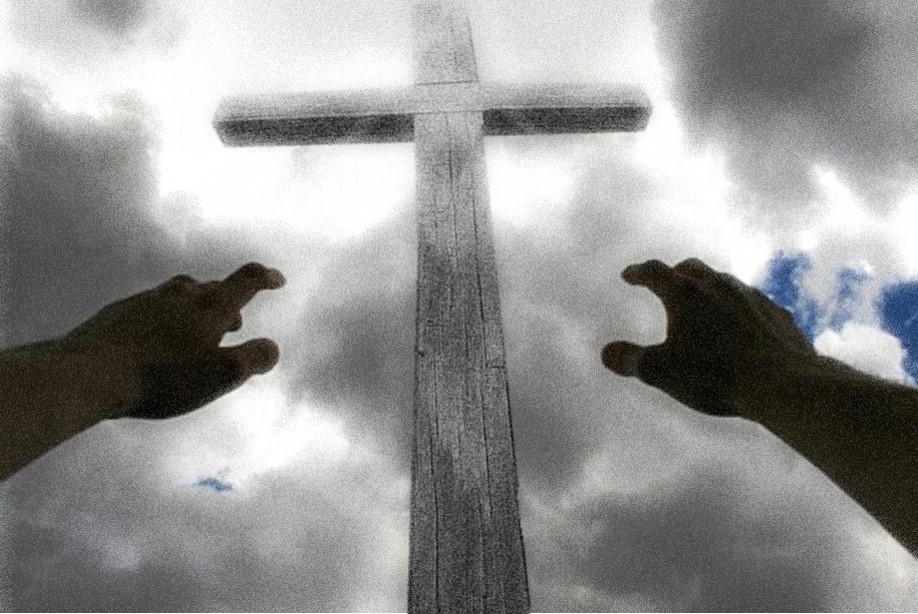
"Do not love the world or the things in the world. If anyone loves the world, the love of the Father is not in him. For all that is in the world—the desires of the flesh and the desires of the eyes and pride of life—is not from the Father but is from the world. And the world is passing away along with its desires, but whoever does the will of God abides forever." 1 Jn 2:15–17
The Apostle John warns us in his first letter, I John 2:15-17 that we are to “not love the world or anything in the world.” When he refers to the world, the Apostle is talking specifically about “the desires of the eyes, the desires of the flesh, and the pride of life.”
Why are we not to love the world? John tells us that if we love the world, “the love of the Father is not in us.” Our affection towards the world will draw us away from God. His warning is also because “the world and its desires are passing away, but the one who does the will of God abides forever.”
All of us here are tempted to love the world. We covet and long for things we think fill us, “the desires of the eyes.” Material things and money, which we think will make us happy. We long for pleasures and comfort, “the desires of the flesh,” which we falsely believe will carry us away from the pains of this world. And then there is the “pride of life,” which have to do with accomplishments and success.
The warning is that these things will not last, not endure or pass away, not fill us, and ultimately push us away from God. That is why the Apostle warns us that when we move towards the world, “love of the Father is not in us.” In other words, our affections are not primarily upon the Lord, but upon the world, material things, pleasures, and success.
Genesis has some very good examples of what happens when a person loves the world more than God. We have Abraham’s nephew Lot who chose to live near the cities of Sodom and Gomorrah, because they looked wealthy and prosperous (Genesis 12, 18-19). But in the end, that love for the world ultimately would cost him everything when those cities were destroyed by God for their immorality.
We have Jacob’s daughter Dinah, (Genesis 34) who wandered to a nearby village of idol worshippers. Little did she know that her attraction there would end up with her being raped, an entire village of men being murdered, and a long-lasting conflict between her father and brothers. Many commentators believe that this all resulted in her having to live the rest of her without a husband and family of her own.
This week we come to one of Jacob’s sons, Judah who also made a bad choice that would lead to the demise of his own family (Genesis 38). He was attracted by something within the pagan culture around him that carried him away from his brothers towards a people whose hearts were far from God. It resulted in terrible consequences.
Marrying into a pagan family, his two first sons were so wicked that God put them to death. The daughter-in-law of his eldest son’s marriage, Tamar, would entice him into an incestuous relationship, resulting in the birth of twin boys. Judah would now become a father and grandfather of both.
Despite Judah’s bad choices and Tamar’s deception, God brings beauty out of ashes. How did God do that? We read in Genesis 38:27-28 that Tamar one of her twin boys, Perez, ultimately becomes the progenitor or the man who stands in the lineage by which God fulfills His promise to Judah’s grandfather Abraham. What was that promise? That through the family line of Abraham, a nation would come. And that through that nation, a Savior a Messiah would bring a blessing and salvation to all nations.
In fact, the gospels only have 2 genealogies that show the family line that Jesus came through. Matthew and Luke. In Matthew’s gospel, only three women are mentioned. One of Matthew’s goals in writing the gospel is to rebuke the religious leaders of his day and show that through Christ alone we are made right with God.
Tamar is one of three women in Matthews’s gospel, along with Rahab and Ruth. Tamar, who through the godless idolatrous Canaanites and an incestuous relationship with Judah bears the great-great-great-great-great-great grandfather (10x) of Jesus, Perez. Rahab who was a prostitute on the walls of Jericho and Ruth a Gentile Moabite. All leading up to Jesus.
Why did God do it that way? God wants us to know that it is not going to be through our own righteousness and the good deeds of our own lives that we find acceptance before Him. He wants us to know that whether you are a product of incest, a prostitute, or a godless Gentile, all have the opportunity for salvation through the person of Jesus Christ and His shed blood.
God so loved the world that He gave His only begotten Son that whosoever believes in Him would have eternal life. It is not by our own goodness and works we can stand before God, but only through what Jesus ultimately did on the cross through His shed blood for our salvation.
